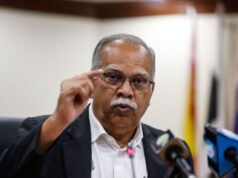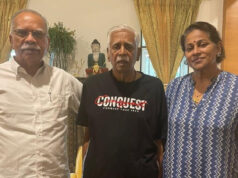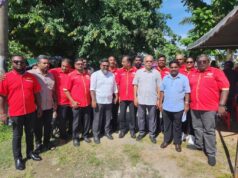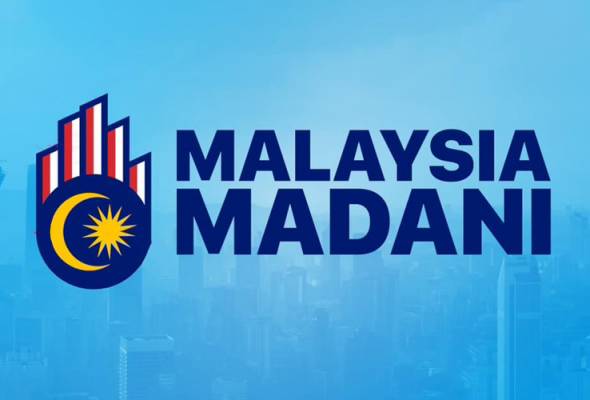 COMMENT BY PROF DR P.RAMASAMY,
COMMENT BY PROF DR P.RAMASAMY,
FORMER DEPUTY CHIEF MINISTER II, PENANG
Do reforms still exist under Madani’s government?
Is becoming a joke to associate Madani’s government with reforms.
Even this government has been elected to power on a much needed reform policy namely reforms to eradicate corruption, irrelevant laws, outdated institutions, introduction of check and balance mechanisms to the legal and judicial system and in other areas that need to be identified.
Prime Minister Anwar Ibrahim has been in office for 11 months but there seems to be no serious discussion on the need for reforms. Reforms were often shouted about in the past, but there is no political will shown by the current government.
Meanwhile, there are many examples revealing that this government is prepared to do anything but action to bring about reform.
The decision of no release (DNAA) to Umno president Ahmad Zahid Hamidi is a dirt in the war against corruption and financial misconduct.
If a serving deputy prime minister can be acquitted of corruption charges then it clearly shows what the government’s true commitment is to eradicate corruption which is the country’s major disaster.
What’s worse is not the decision of Zahid’s release but the blatant and unreasonable excuse given by “reform king” Anwar to defend and preserve the image of Zahid, who is said to be his close friend.
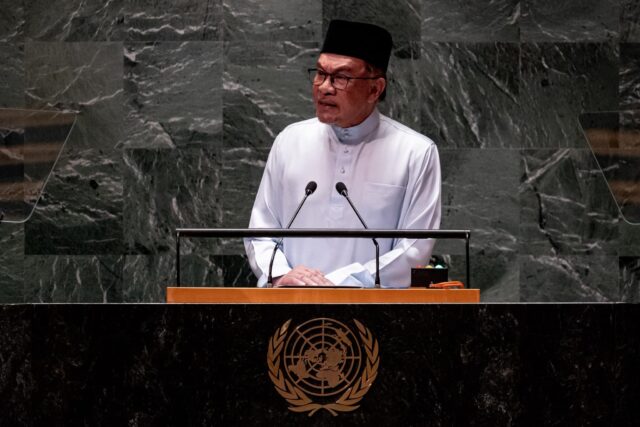 Anwar, by placing the blame on retired attorney general (AG) Idrus Harun, is trying to keep himself away from being caught in the mess.
Anwar, by placing the blame on retired attorney general (AG) Idrus Harun, is trying to keep himself away from being caught in the mess.
It’s not about the dubious delay given to Zahid, but the heavy political and moral cost to the government in justifying corruption and money laundering.
DNAA Zahid has totally dropped Madani unity government reform package pretending to be in his stand.
Anwar has shown without a doubt that at its core, what becomes the most important measuring stick of the unity government is the power held by Anwar and not the war on corruption.
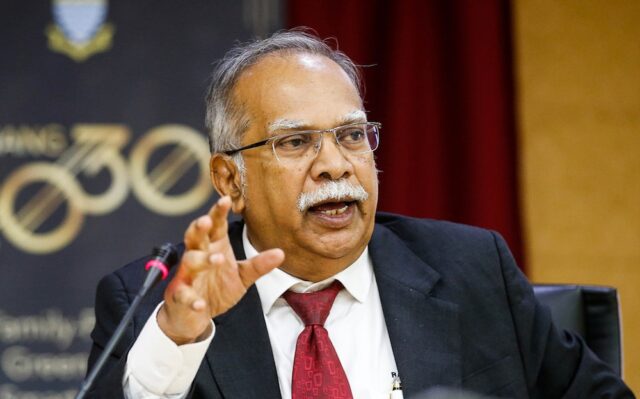 Clearly whatever the justification is given by Anwar or the AGC office, reforms have been buried deep in the ground.
Clearly whatever the justification is given by Anwar or the AGC office, reforms have been buried deep in the ground.
If eradicating corruption is taken lightly then how can the people trust the government in implementing reforms in several segments of the administration.
Despite being promised, draconian laws such as the Incitement Act, Printing Machine Act, Sosma and others continue to exist in this country.
There is no attempt to remove or eliminate the disgusting aspects of these anti-democracy acts.
On the other hand, ministers in government have been entrusted with the responsibility of rationalizing this undemocratic law. Shame!
Reform is certainly not on the agenda, but there are pretensions about it. A government based on the Madani concept has little or nothing to say about morals with regard to important ethical matters.
What is the difference between the former BN government and the current government?
Except for a difference in personality, the actions performed are equal or worse. At least the BN government is not fooling people by shouting calls for reform.
At the international level, Anwar has the habit of giving the right message to show that he is the most suitable person to lead the country.
His speeches are often infused with historical words, concepts and names to give an image that Anwar is highly educated and philosophical.
But in the country, Anwar is not so different from Umno’s past right-wing politicians.
Due to political threats from the opposition, Anwar has initiated actions to appease Muslim Malay conservatives to the extent of supporting the cruel quota system of admission to matriculation programs and inclusion into public services.
Besides repeating the mantra Malay, Chinese and India are his children, Anwar has stopped addressing the problems and concerns of non-Malays in this country especially the less fortunate.
One thing that has disappointed many parties including the ever-critical opposition was his educated attitude that was lost when Anwar roughly answered the questions of young Indian girls by normalizing the government’s entry quota system.
Anwar has also been happily involved in presiding over the conversion ceremony of a Hindu youth which sparked the anger of Indian people.
The length of time required by Anwar to become prime minister is understandable. There is hope from all walks of society that he will be the leader as the people of Malaysia have long hoped for. As opposition leader, he has built a reputation as a serious reformer needed in the country.
However, once in power, Anwar has scrapped his previous image as a serious reformer.
At present, Anwar’s task does not seem to be to implement reforms but how to remain in power at least for a full term.
Yes, at the international level Anwar can deliver all the right messages that may make him liked by many. The true nature of Anwar’s leadership must be measured from the domestic level, whether he is honest and credible in bringing the promised and much needed reforms to the people.
As far as I understand, reform has basically died in this country.
Reformation rhetoric may exist but it doesn’t have any meaning or foundation. The talk about reform is basically to extend the government. Anwar’s main objective is to be in power till full term irrespective of the worst happening in the political and economic system.
Meanwhile, the political atmosphere is not in favor of Anwar or Madani’s government. Anwar may stop implementing reforms, but the opposition has not given up. Starting from the last federal election to the recent state election and by-elections in Johor, there has been an exodus of Malay voters moving towards the opposition of PN.
Unless Anwar initiates something drastic or unthinkable politically at this time, the swing of Malay voters towards the opposition cannot be contained.
The political swing of the Malays may not have anything to do with the green wave phenomenon, it may be due to the indisputable fact that PN is seen as a cleaner political coalition than the PH-BN alliance.
However, reforms under Madani Anwar’s government is something that can only be discussed academically. It is more appropriate to talk about the ending of the reforms that were previously promised.





